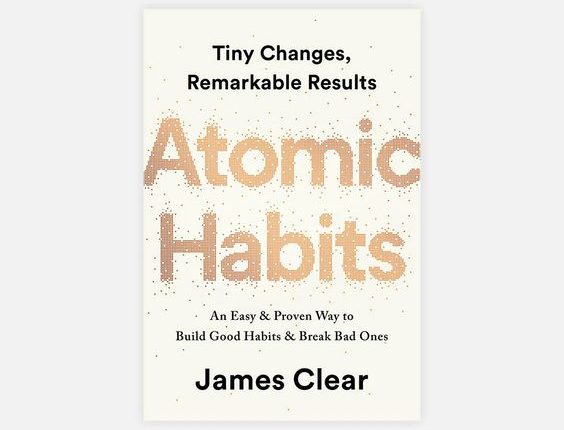Review on Atomic Habits
A Book Review written by Dibya Dahal
It’s not your mistake if you find it difficult to alter your behaviours. Your system is at fault. The reason why bad behaviours keep happening isn’t that you don’t want to change; rather, it’s that your mechanism for change is ineffective. You don’t reach the level of your objectives. As a result of your systems, you decline. You can get new heights with this tried-and-true approach.
Atomic Habits provides a tested foundation for constant improvement, regardless of your goals. James Clear, one of the world’s foremost authorities on habit formation, offers actionable advice that will ultimately show you exactly how to develop positive habits, break negative ones, and master the minute actions that produce excellent outcomes.
If you really want to change the habits you have, whether you’re a team trying to win a championship, an organization trying to change an industry, or just a regular person trying to stop smoking, get in shape, de-stress, or accomplish any other goal, Atomic Habits will change the way you view progress and success.
In order to produce an understandable manual for making good habits inevitable and bad habits unavoidable, he here draws on the most well-established concepts from biology, psychology, and neuroscience. The readers will be inspired and amused by actual accounts. This book has had incredible success, making bestseller lists all around the world. James Clear started with an email list, which grew in popularity until he had millions of people, including business leaders, professional athletes, and renowned and prominent people, as followers.
Each of the book’s roughly 20 chapters begins with a true story about how a certain event affected the life of the person or organization that is the subject of the tale. This increases the chapter’s context for the remaining paragraphs. Additionally, the author provides many examples of how to put the ideas into practice, making it simpler for the reader to relate them to their own schedule and choose how to use the techniques.
I thought this book’s guidance on how to tell the difference between motion and action was one of the greatest I’ve ever seen. When you plan and think about doing anything, it appears as though you have already taken action. But it’s not, really. Book suggests doing a little work rather than making elaborate plans and attempting to produce something excellent or perfect. Improve in something by a little bit.
“We never get around to acting because we are so preoccupied trying to figure out the best strategy.”
If you’re searching for a book with a lot of dos and don’ts for forming new habits and breaking bad ones, Atomic Habits is an excellent choice. It is packed with suggestions that you may put into practice right away. The long-term quality of our lives is frequently influenced by the calibre of our habits.
It is quite simple to overvalue a single defining moment and undervalue the impact of daily incremental progress. Habits are the self-improvement equivalent of compound interest. Be far more focused on your current path than on your current performance. Your habits’ lagging indicator is how you perform. A lagging indicator of your financial behaviour is your net worth. Your weight serves as a lagging indicator of your eating patterns.
The outcomes you wish to get are what goals are all about. Systems are all about the procedures that result in those outcomes. Leave goal-setting behind if you want better outcomes. Instead, pay attention to your system. Goals are useful for providing direction, but the best methods for advancing are systems. Setting goals has a severe case of survivorship bias. We focus on the survivors—the ones who ultimately prevail—and erroneously believe that their achievement was a result of their lofty ambitions, while ignoring all the others who had the same desire but failed. Although we believe that our results need to alter, the issue does not lie in the results. The processes that lead to those outcomes are what we truly need to alter.
To win the game is the reason for setting goals. To keep playing the game, systems are built. True long-term thinking lacks objectives. It is not focused on a particular success. It is about the process of ongoing improvement and refining. You don’t reach the level of your objectives. As a result of your systems, you decline. An atomic habit is a little behaviour pattern that exists within a bigger system. Every set of beliefs underlies every set of behaviours. The system is shaped by a collection of ideas and presumptions that form an identity behind the behaviours. Incongruent behaviour won’t continue for very long.
“Every action you take is a vote for the type of person you wish to become. No single instance will transform your beliefs, but as the votes build up, so does the evidence of your new identity. This is one reason why meaningful change does not require radical change. Small habits can make a meaningful difference by providing evidence of a new identity. And if a change is meaningful, it is big. That’s the paradox of making small improvements.”
-Written by Dibya Dahal.


Comments are closed.